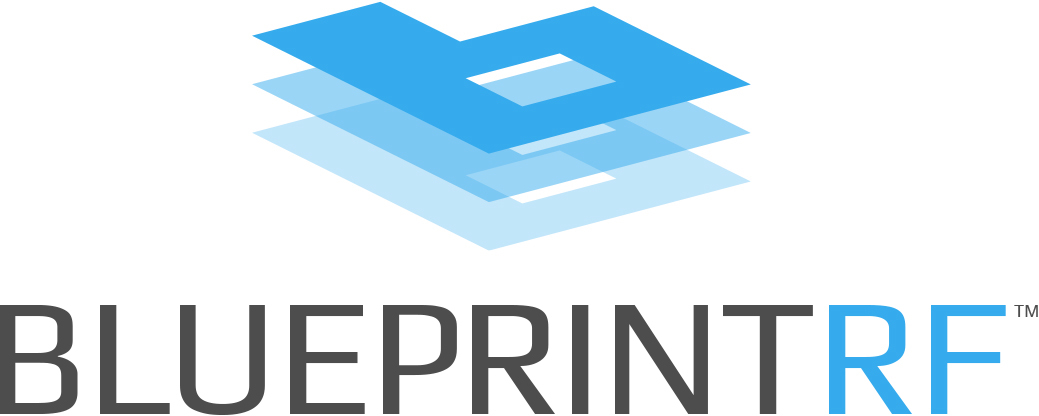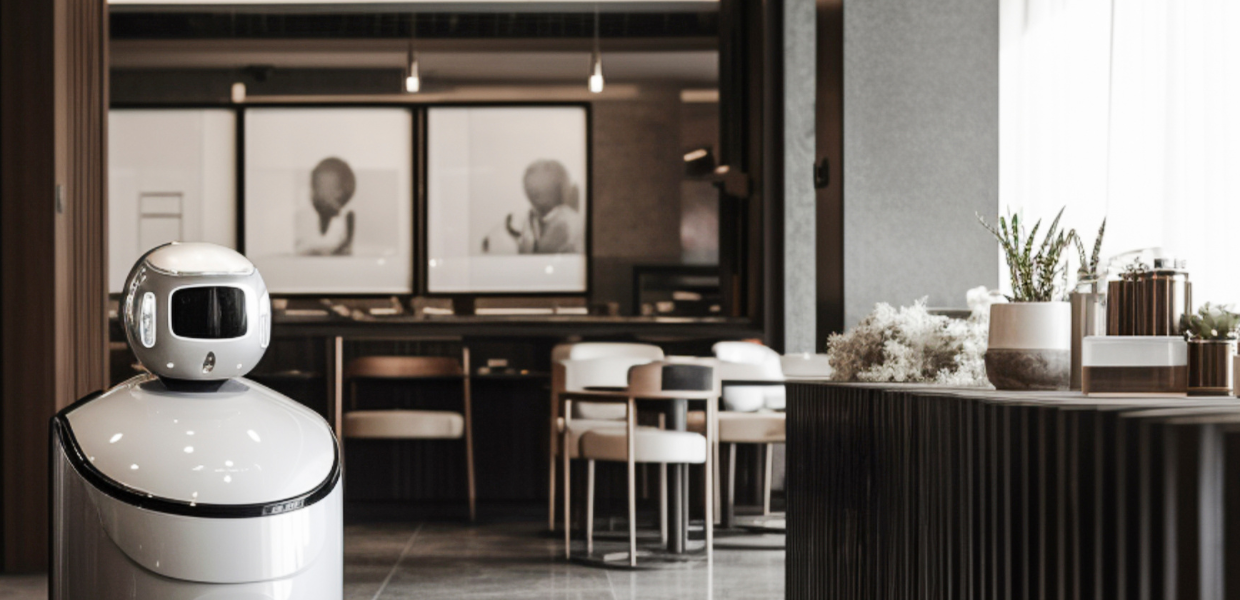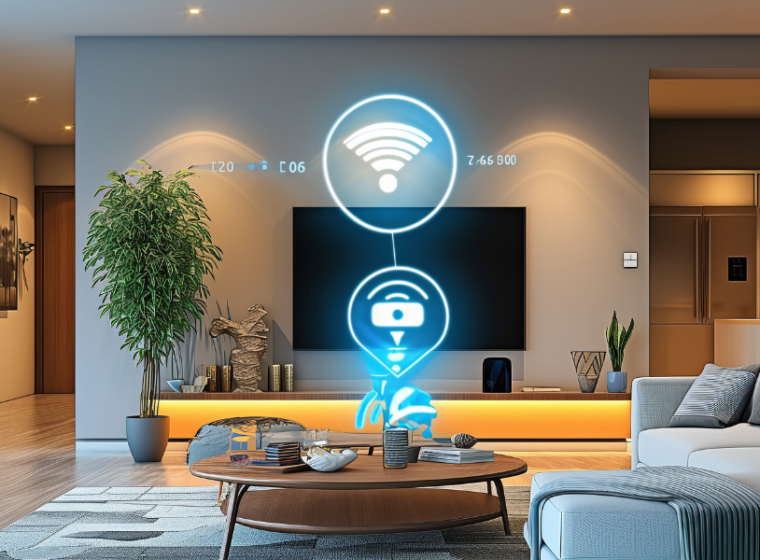As the hospitality industry continues to devise new and innovative solutions, service robots in hotels are becoming increasingly adopted to enhance guest experiences and streamline the efficiency of day-to-day operations.
From assisting with luggage transport to automating front desk processes, there’s a lot to unpack with the utilization of robots in hotels and the value they provide.
Notable Examples of Robots in Hotels
Robots in hotels are becoming a fundamental element of the modern hospitality business, offering an efficient and cost-efficient approach to enhance client service and minimize the overhead associated with laborious tasks. Notable examples of hotel robots demonstrate how far this technology has come in recent years, with many hotels now utilizing voice-activated bots for various tasks.
Aloft Hotels’ Botlr
One of the first examples of robots working in hotels was Aloft Hotels’ introduction of “Botlr” in 2014, a robot butler designed to reduce wait times for guests and improve housekeeping efficiency. Setting a precedent for this technology’s efficacy, this robotic bellhop delivers items such as towels, toiletries, and snacks directly to guests’ rooms 24 hours a day. By providing consistently high-quality service, Botlr significantly improves guest satisfaction scores and has become a momentous trendsetter in hotel robot technology adoption.
Sheraton Los Angeles San Gabriel’s Voice-Activated Robots
In another innovative move within the hotel industry, Sheraton Los Angeles San Gabriel deployed voice-activated robots that assist with front desk tasks like check-in/check-out procedures and answering frequently asked questions about local attractions or amenities. These AI-powered robots not only save time for both staff members and guests but also create memorable experiences that set these hotels apart from their competitors.
Beyond these specific instances, many other hotels worldwide are exploring various ways to incorporate robotic technology into their services – whether it be through automating tasks like luggage-carrying or room cleaning or enhancing customer interactions via artificial intelligence-driven chatbots at the front desk.
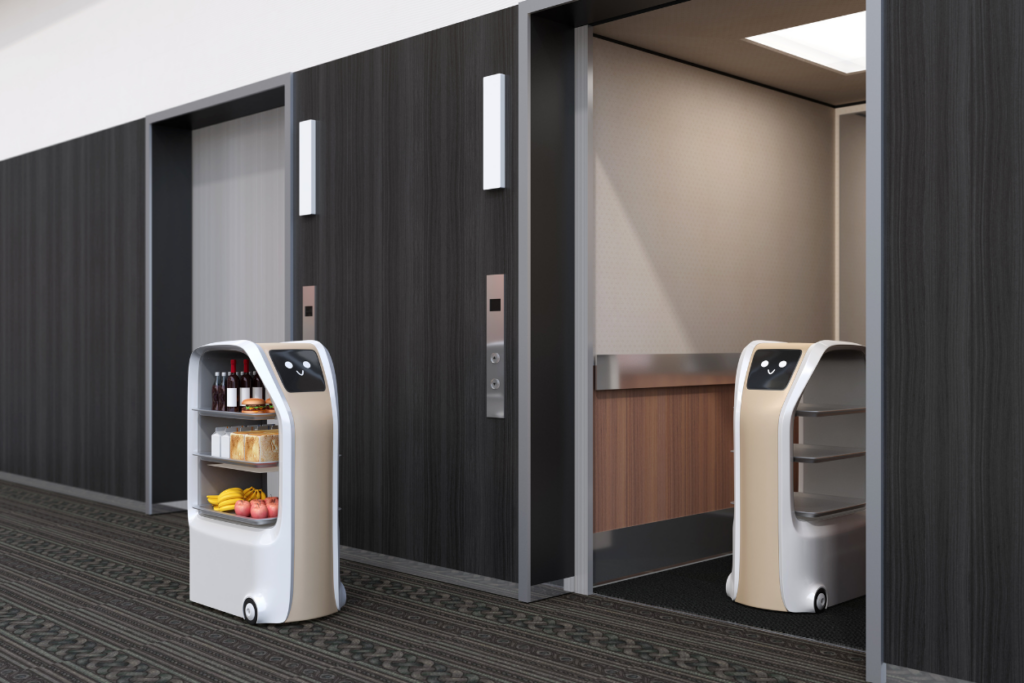
Advantages of Robots in Hotels
Using robotic technology helps save time by automating repetitive tasks while helping to reduce costs associated with labor. These advantages contribute significantly towards enhancing operational efficiency across multiple departments within hotels. The key benefits can be categorized into the following:
Automation of Repetitive Tasks
Hotel robots can perform various duties, such as carrying luggage, assisting at the front desk, delivering room service, cleaning, and disinfecting with efficiency and precision. By taking over these routine jobs, hotel staff can focus on more critical aspects of guest experience and customer service.
Streamlined Workflow
The integration of artificial intelligence (AI) into the hospitality industry allows for improved communication between different departments in a hotel. For example, AI-powered chatbots can instantly relay guest requests to relevant personnel or even directly to robots that handle specific tasks.
Reduced Operational Costs
By automating certain functions previously performed by humans, hotel managers can potentially reduce labor expenses, particularly during peak seasons when additional temporary staff may be required. Robots are generally low-maintenance and can work for extended periods without breaks, leading to cost savings in the long run.
Robots can provide a competitive edge by freeing up the time required of human staff while helping to personalize a guest’s stay. However, there are also challenges associated with their use, such as high initial costs and potential job displacement for human workers.
Challenges of Robot Utilization in Hotels
Despite the numerous advantages offered by robotics integration into hospitality services, there are several challenges and hurdles that hoteliers must address before fully embracing this new technological advancement.
Cost Considerations
Investing in robotic technology can be expensive initially, especially for small to medium-sized hotels. The high upfront costs may deter some hotel managers from adopting service robots; however, it is essential to consider the long-term benefits such as increased efficiency and reduced labor expenses.
Implementation Hurdles
Incorporating robots into existing hotel operations requires careful planning and coordination between various departments. Additionally, staff members need adequate training on how to interact with and manage these advanced machines effectively.
Maintenance Issues
Maintaining a fleet of service robots involves regular software updates and hardware repairs or replacements when necessary. Hoteliers should factor in ongoing maintenance costs while assessing the feasibility of implementing robot solutions within their establishments.
Lack of Standardization
The absence of standardized protocols for integrating AI systems across different platforms can pose significant challenges during implementation. To overcome this obstacle, industry stakeholders must collaborate on developing universal guidelines for seamless AI adoption within the hospitality sector.
Despite the challenges and obstacles faced while implementing robotic infrastructure, the hospitality sector is seeing a steady growth in robotics innovation and adoption due to its potential for increased efficiency and cost savings.
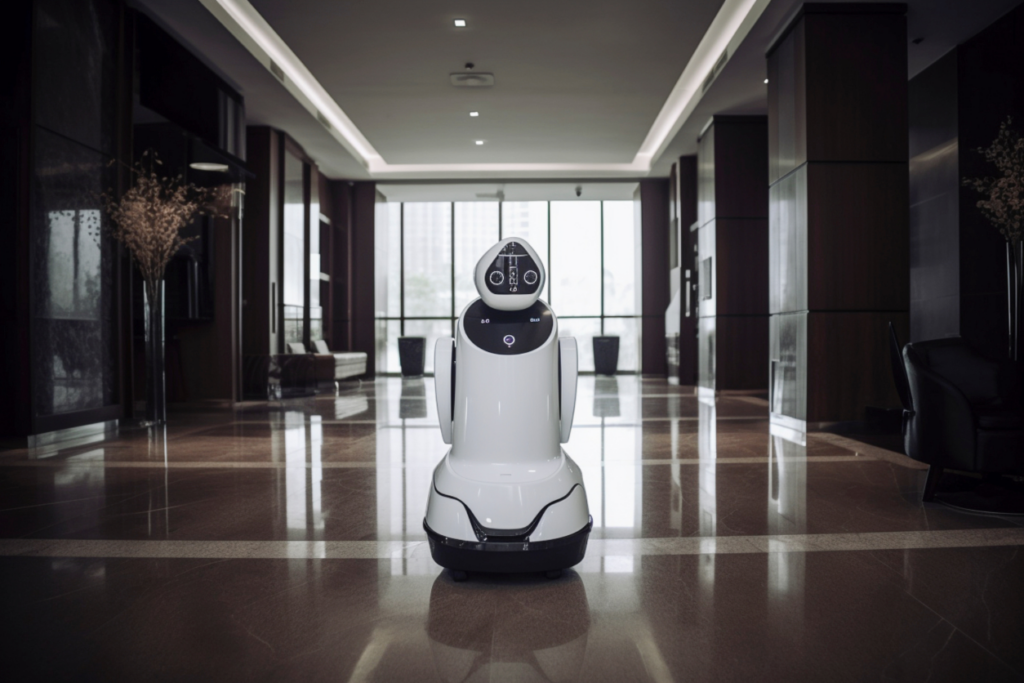
Growth Forecast for Robotics in the Hospitality Sector
A prediction of remarkable expansion is anticipated in the international market for service robots employed in hotels during the upcoming years.
According to insights by Starfleet Research, the market for collaborative robotics and service robotics companies is expected to be $114 billion by 2027. This projected growth underscores the importance of staying ahead of the curve and adopting new technological advancements within the hospitality industry.
- Increased demand for automation: As hoteliers recognize the benefits of automating tasks, such as luggage-carrying, front desk assistance, and room service delivery, they are increasingly investing in robotic technology to improve their operations and enhance guest experiences.
- Improved efficiency: The use of AI allows these service robots to learn from their environment and optimize their performance over time. This results in streamlined workflows that can significantly reduce operational costs for hotel managers.
- Innovative solutions: Hotel operators are constantly seeking ways to differentiate themselves from competitors while providing exceptional customer experiences. By embracing cutting-edge technologies like robotics, hotels can offer unique services that set them apart within a highly competitive marketplace.
To capitalize on this growing trend, it’s crucial for hospitality businesses to invest not only in advanced robotic systems but also in reliable connectivity and managed network solutions to support these new technologies.
Connectivity to Support Hotel Robot Technology
Successful implementation and operation of hotel robots rely heavily on dependable WiFi connectivity. To ensure robots can perform optimally, a reliable network infrastructure must be in place to enable communication between devices and systems. This allows robots to communicate effectively with other devices, systems, and personnel within the hotel.
As a managed network provider, Blueprint RF offers comprehensive WiFi and connectivity services, including network audits, design, installation, and ongoing support to guarantee the smooth functioning of advanced technology within your hospitality business. These services support faster response times, minimized errors, and satisfied guests.
In today’s competitive hospitality landscape where innovation is key, robot integration can provide an edge. Learn more about how to support the adoption of such technologies with the WiFi solutions provided by Blueprint RF.

